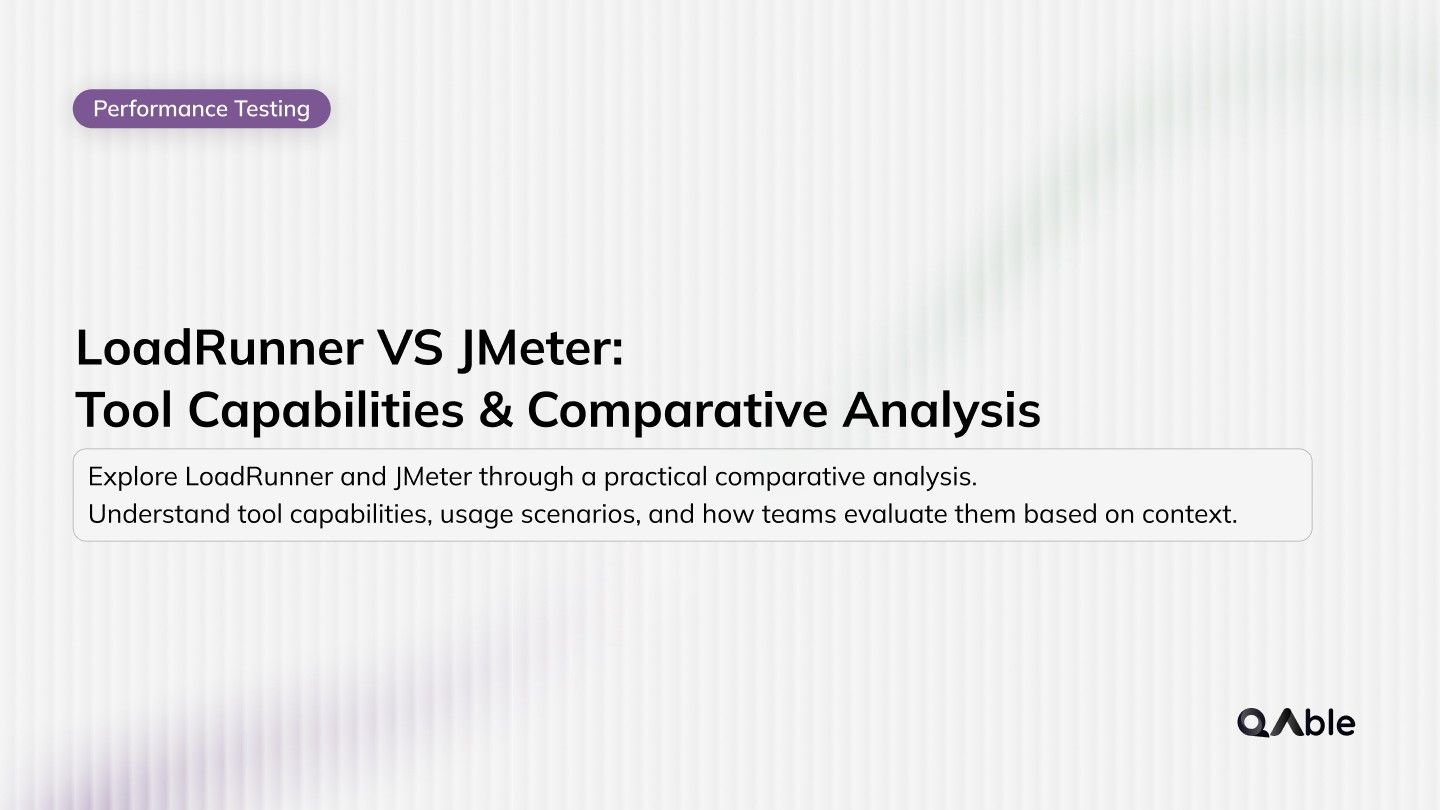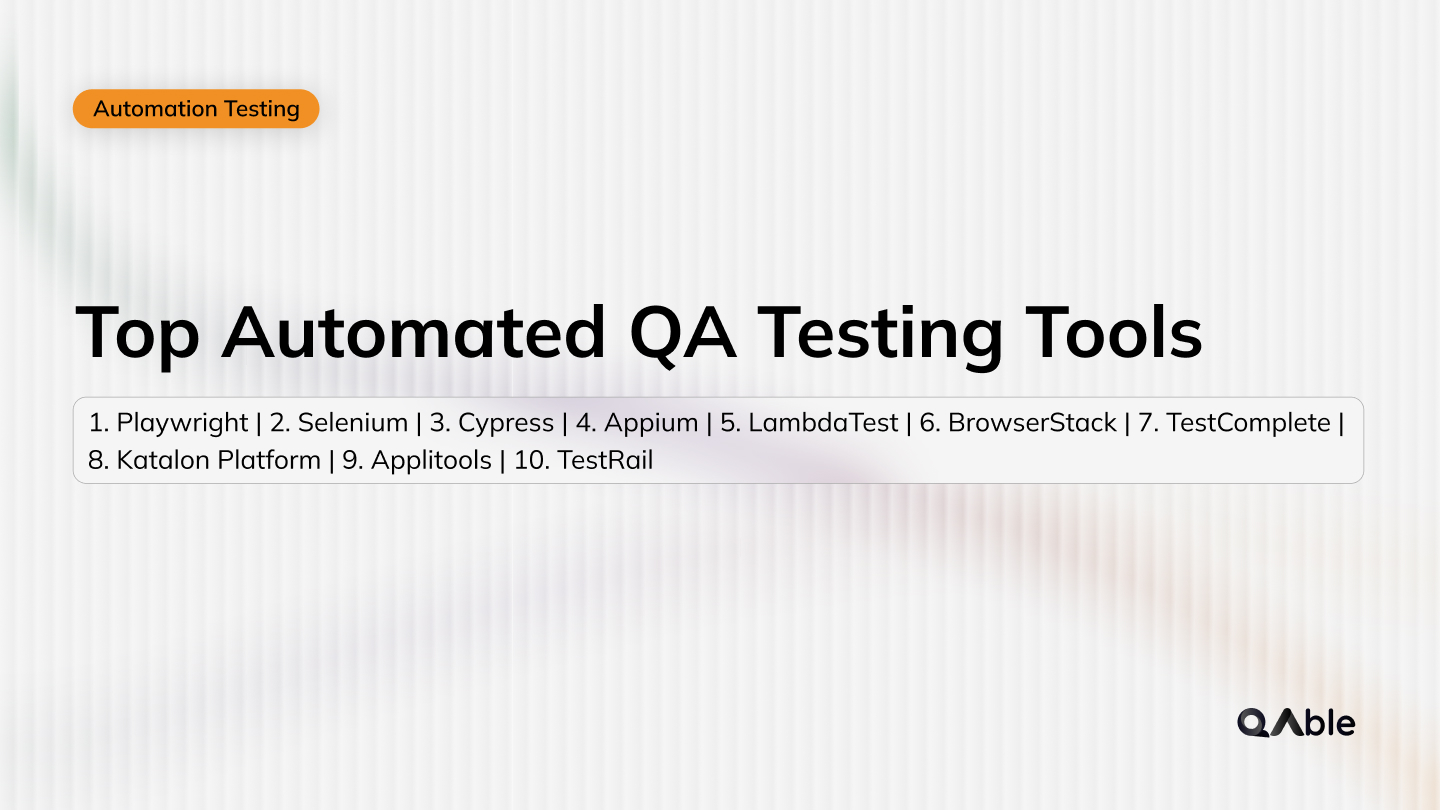Table of content
SHARE THIS ARTICLE
Is this blog hitting the mark?
Contact Us
Table of Content
- What is CRM Testing?
- Why is CRM Testing Important?
- How to Do CRM Testing?
- What are the Tools, Resources, and Costs of CRM Testing?
- How Can We Help You?
- FAQs
Customer relationship management (CRM) is an important part of every successful organization. It helps you manage your interactions with current and potential customers, improve customer satisfaction, and increase sales. However, CRM systems are complex and require constant testing to ensure they function properly and meet your business needs.
In this blog post, We will share with you some of the best practices, tools, resources, and costs involved in CRM testing.
What is CRM Testing?
CRM testing is the process of verifying and validating the functionality, performance, security, usability, and compatibility of your CRM system. It involves checking various aspects of your CRM system:
Data integrity
We ensure that the data entered, stored, and retrieved by your CRM system is accurate, complete, and consistent.
Business logic
We ensure that the workflows, rules, and calculations implemented by your CRM system are correct and aligned with your business goals.
User interface
We ensure that the design, layout, and navigation of your CRM system are user-friendly, intuitive, and responsive.
Integration
We ensure that your CRM system can communicate and exchange data with other systems and applications, such as email, social media, analytics, etc.
Performance
We ensure that your CRM system can handle high volumes of transactions and users without compromising speed, reliability, and availability.
Security
We ensure that your CRM system can protect the confidentiality, integrity, and availability of your data and prevent unauthorized access, modification, or deletion.
CRM testing can help you identify and fix any defects, errors, or bugs in your CRM system before they affect your customers and your business. It can also help you optimize your CRM system and enhance its features and functionalities.
Why is CRM Testing Important?
CRM testing is important for several reasons, such as:
- Improving customer satisfaction: CRM testing can help you ensure that your CRM system delivers a positive and consistent customer experience. It can help you avoid customer complaints, frustration, and dissatisfaction caused by faulty or inefficient CRM system.
- Increasing sales and revenue: CRM testing can help you improve your sales and marketing strategies and campaigns by providing you with accurate and reliable data and insights. It can help you target the right customers, offer the right products or services, and increase your conversion rates and retention rates.
- Reducing costs and risks: CRM testing can help you save time and money by preventing or minimizing the impact of CRM system failures, downtime, or breaches. It can help you avoid losing customers, data, or reputation due to poor CRM system performance or security.
- Enhancing innovation and competitiveness: CRM testing can help you keep up with the changing customer expectations and market trends by enabling you to update and upgrade your CRM system regularly. It can help you introduce new features and functionalities, improve your CRM system efficiency and effectiveness, and gain a competitive edge over your rivals.
Also read: Software Product Testing Strategy and Best Practices
How to Do CRM Testing?
CRM testing can be done in different ways, depending on your CRM system type, scope, and complexity. However, some of the common steps involved in CRM testing are:
Planning
Defining the objectives, scope, and approach of your CRM testing. You should also identify the test cases, test data, test environment, test tools, test team, and test schedule for your CRM testing.
Designing
Creating and documenting the test scenarios, test scripts, and test procedures for your CRM testing. You should also define the expected results and the acceptance criteria for your CRM testing.
Executing
Running the test cases and test scripts on your CRM system and recording the actual results and observations. You should also compare the actual and predicted outcomes to find any differences or inconsistencies.
Reporting
Analyzing and evaluating the test results and identifying the defects, errors, or bugs in your CRM system. You should also document and communicate the test findings, test status, and test metrics to the relevant stakeholders.
Resolving
Fixing and resolving the defects, errors, or bugs in your CRM system and verifying and validating the solutions. You should also retest the CRM system to ensure that the defects are resolved and the CRM system meets the requirements and expectations.
Also read: Why Choose Us as Your Outsourced Software Testing Partner
What are the Tools, Resources, and Costs of CRM Testing?
CRM testing can be done using various tools, resources, and costs, depending on your CRM system type, scope, and complexity.
Tools: there are many tools available in the market that can help you with CRM testing, such as:
- Test automation tools: these tools can help you automate the execution of your test cases and test scripts, saving you time and effort. Some examples of test automation tools are Selenium, TestComplete, Katalon Studio, etc.
- Test management tools: these tools can help you manage and organize your test cases, test data, test results, test reports, and test team, improving your test efficiency and quality. Some examples of test management tools are Jira, TestRail, Zephyr, etc.
- Performance testing tools: these tools can help you measure and evaluate the performance of your CRM system, such as its speed, reliability, and availability. Some examples of performance testing tools are LoadRunner, JMeter, BlazeMeter, etc.
- Security testing tools: these tools can help you assess and improve the security of your CRM system, such as its confidentiality, integrity, and availability. Some examples of security testing tools are Nmap, Burp Suite, OWASP ZAP, etc.
Resources: there are many resources available online that can help you with CRM testing, such as:
- Blogs: these are articles or posts written by experts or practitioners in the field of CRM testing, sharing their knowledge, experience, and tips. Some examples of blogs are Software Testing Help, Guru99, Testing Excellence, etc.
- Forums: these are platforms or communities where you can interact and exchange ideas with other CRM testers, asking questions, answering queries, and providing feedback. Some examples of forums are Stack Overflow, Reddit, Quora, etc.
- Courses: these are online or offline learning programs that can teach you the basics or advanced concepts and skills of CRM testing, such as its types, techniques, tools, etc. Some examples of courses are Udemy, Coursera, EdX, etc.
- Books: these are printed or digital publications that can provide you with comprehensive and in-depth information and guidance on CRM testing, such as its best practices, challenges, solutions, etc. Some examples of books are CRM Testing: A Practical Guide, CRM Testing: A Complete Handbook, CRM Testing: A Step-by-Step Approach, etc.
Costs: there are many costs involved in CRM testing, such as:
- Tool costs: these are the costs of acquiring, installing, maintaining, and updating the tools that you use for CRM testing, such as the license fees, subscription fees, support fees, etc.
- Resource costs: these are the costs of accessing, using, and consuming the resources that you use for CRM testing, such as the internet fees, data fees, electricity fees, etc.
- Personnel costs: these are the costs of hiring, training, managing, and retaining the personnel that you need for CRM testing, such as the salaries, benefits, incentives, etc.
- Infrastructure costs: these are the costs of setting up, operating, and maintaining the infrastructure that you need for CRM testing, such as the hardware, software, network, etc.
The exact amount of these costs may vary depending on your CRM system type, scope, and complexity, as well as your CRM testing objectives, scope, and approach. However, you should always consider the return on investment (ROI) of your CRM testing, which is the ratio of the benefits to the costs of your CRM testing. You should aim to maximize your ROI by optimizing your CRM testing process and minimizing your CRM testing costs.
How Can We Help You?
As you can see, CRM testing is a crucial and challenging task that requires a lot of planning, designing, executing, reporting, and resolving. It also requires a lot of tools, resources, and costs that may not be readily available or affordable for you.
That's where we come in. We are leading software testing company in India, with over 10 years of experience and expertise in CRM testing. We have a team of qualified, certified, and experienced CRM testers who can help you with your CRM testing needs. We provide CRM testing service and have access to the latest and best CRM testing tools and resources that can help you with your CRM testing process. We offer competitive and transparent CRM testing costs that can fit your budget and expectations.
If you want to improve your CRM system and your business success, contact us and let us help you with your CRM testing. We are your CRM testing partner, and we are here to help you. 😊
Discover More About QA Services
sales@qable.ioDelve deeper into the world of quality assurance (QA) services tailored to your industry needs. Have questions? We're here to listen and provide expert insights


Nishil Patel is the Co-founder of QAble, delivering advanced test automation solutions with a focus on quality and speed. He specializes in modern frameworks like Playwright, Selenium, and Appium, helping teams accelerate testing and ensure flawless application performance.
.svg)














.webp)
.webp)
.png)
.png)











.png)



.png)

.png)

.png)





.jpg)







.jpg)

.png)




.webp)

